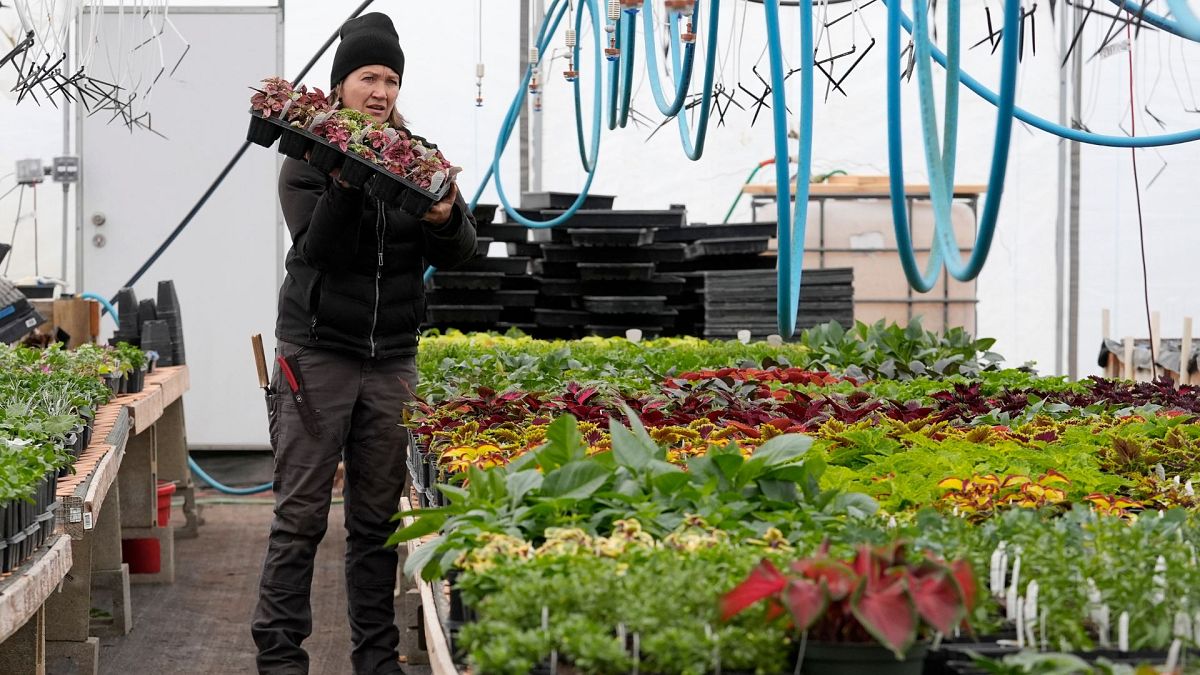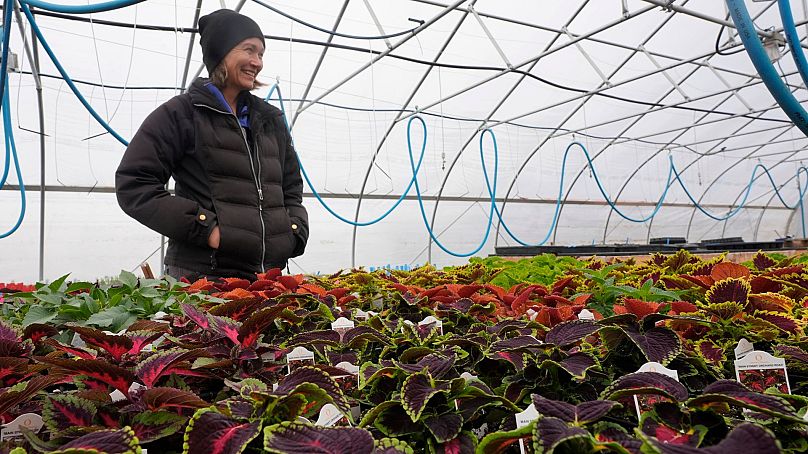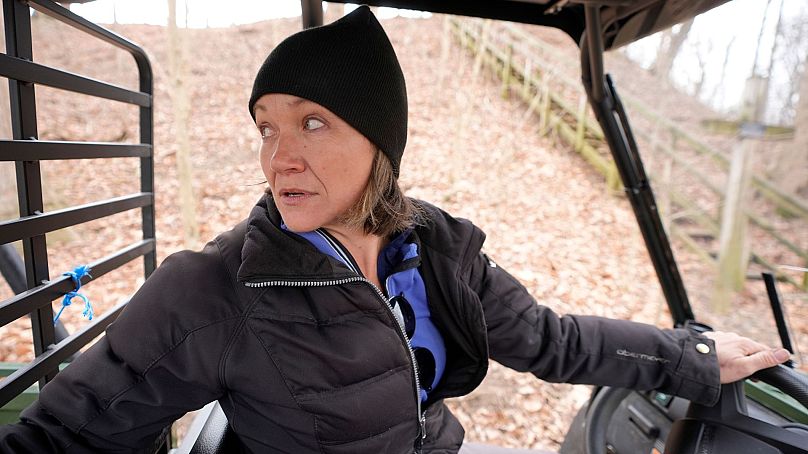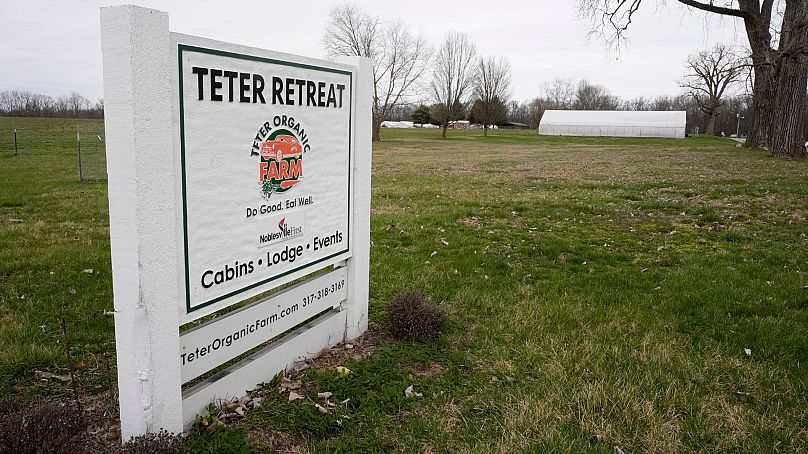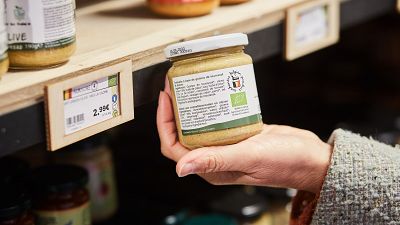Are organic farms ‘pest hot spots’? Study investigates rise in pesticide use in neighbouring fields.
Champions of organic farming have long portrayed it as friendlier to humans and the earth. But a new study in a California county found a surprising effect as their acreage grew: nearby conventional farms applied more pesticides, likely to stay on top of an increased insect threat to their crops, the researchers said.
Ashley Larsen, lead author of the study in this week's journal Science, said understanding what's happening could be important to keeping organic and conventional farmers from hurting each other's operations.
“We expect an increase in organic in the future. How do we make sure this is not causing unintended harm?” asked Larsen, an associate professor at the University of California, Santa Barbara.
By contrast, the researchers found that when organic farms were surrounded by other organic fields, their pesticide use dropped, which the team thinks may be due to their shared reliance on bugs that are natural enemies of agricultural pests.
Organic farms are allowed to use certain approved pesticides, but often turn first to 'good bugs' that prey on the pests. “It seems that spatially clustering or concentrating organic fields could provide that benefit or that solution,” Larsen said.
Should organic and conventional farms be kept separate?
The researchers analysed 14,000 fields in California's Kern County over a seven-year period.
Organic farm acreage has been trending upward since 2000, though it still accounts for less than 1 per cent of all farmland in the US, according to the USDA. As that change occurs, Larsen and her team say keeping organic and conventional farms sufficiently separate could benefit both.
But many farmers, both conventional and organic, balk at the idea of policies that might restrict where different methods can be used. And some outside researchers said more study was needed before contemplating policy recommendations.
They noted that the study didn't measure the kind or number of insects on the different farms, meaning the increased pesticide use may have been just a precaution.
Conventional farmers treat organic farms as pest 'hot spots'
Still, the “impressive data set” makes the study useful in generating worthwhile questions about farming practices and pesticides, said Christian Krupke, who studies insects as a professor of entomology at Purdue University and was not involved in the study. The overall number of insects is going down, a phenomenon some scientists have called the “insect apocalypse", but pesticide use is not decreasing, he said.
Krupke said the research shows how conventional farmers treat nearby organic operations “as this focal point of potential outbreaks”.
David Haviland, an entomologist with the University of California also not involved with the study, agreed. He described the fight in Kern County to control the glassy-winged sharpshooter, which infests citrus orchards and can introduce devastating plant diseases into grapes, almonds and some other crops.
Haviland said that regional maps clearly showcase organic farms as “these big, incredible hot spots where there’s massive numbers of this pest.” Conventional growers next door have to increase their pesticide use as a result, he said.
Yichao Rui, an agroecologist at Purdue, said that kind of response by farmers isn't always due to an actual increase in pests; sometimes, it's just for “peace of mind”. And Katy Rogers, who manages an organic farm outside Indianapolis, said that in many cases it’s a misconception that organic farmers are harbouring massive pest infestations.
“We’re not fostering populations of detrimental insects on most organic farms, on a well-managed farm,” she said. “We are simply battling them with other tools first. Because the bad bugs would still destroy my crop.”
'Holistic assessment' of farming practises needed
Rui said investigating the environmental consequences of organic farming is a worthy goal, and both organic and conventional farms have room for improvement. But he thinks looking only at at pesticide use doesn't account for factors like human health, air and water quality and ecosystem diversity that can be affected by different farming methods.
“We need to have a holistic... assessment of the benefits and tradeoffs of all of these agricultural practises,” he said.
Brad Wetli, an Indiana farmer who farms grain conventionally, said that he hasn't noticed any changes in his pest control situation since his neighbour switched to organic four years ago.
He thinks that farmers may be quicker to apply more pesticides to high-value crops like the fruits, vegetables and nuts in California, whereas the row crops he grows like corn and beans aren't worth as much per acre, so it would take a bigger change in the number of insects he saw on his farm before reaching for more spray.
Wetli was more concerned with soil management. He's careful to plant cover crops and has worked to reduce tilling, which can cause soil erosion and contaminate waterways, and said organic farming sometimes still involves tilling.
What impact does conventional farming have on organic?
Meanwhile, organic farmers expressed concern that the study addresses the effects of organic farms on conventional ones but not the other way around. For example, they can lose their certification for up to three years if a prohibited material is applied on their fields, even if by accident, according to the USDA.
Walter Goldstein, a corn breeder in Wisconsin who produces both organic and non-organic seed, grew up working on an organic farm amid conventional ones and still remembers pesticide drift.
“There's just these really weird smells,” he said. “Chemical smells. They smell like factory stuff."
Jay Shipman, who owns an organic farm in Kern County near another large organic farm, said that he likes farming next to someone with similar practices “not just because it’s economics”, he said, but because “this is how I eat. This is how I want my family eating”.
He added, however, that he grew up in conventional agriculture and understands that trying to convince farmers they should do something differently can be “tough to change, tough to swallow”.
Rogers, the Indianapolis organic farm manager, spent much of her life in conventional agriculture and says she was taught that organic farmers were “enemies”. She's now deeply committed to a small church-run organic and regenerative farm with vegetables, beehives and hay.
Rogers said she can see benefits from clustering organic farms together, but thinks dividing organic and conventional farmers as the researchers suggested could be “even more polarising”.
“At the deepest level, we’re all stewarding land and we all actually want to contribute," she said.
